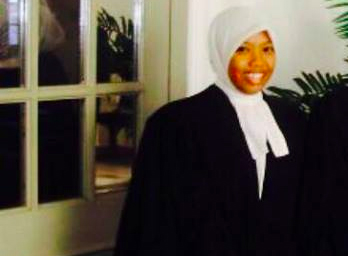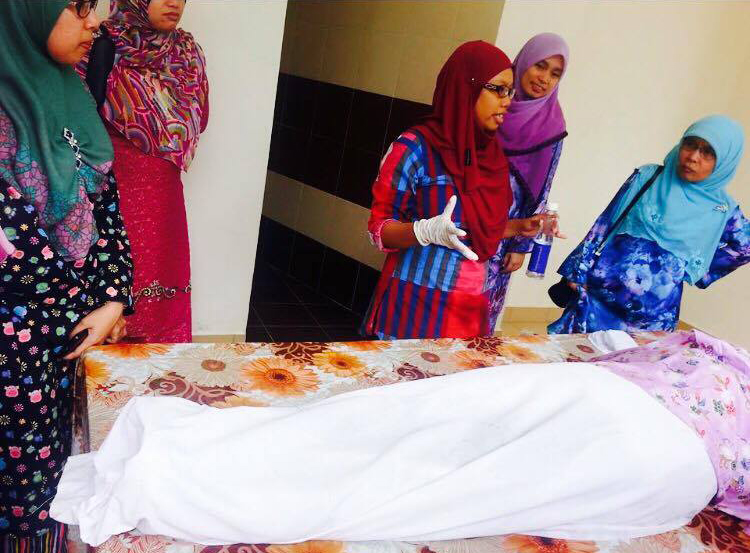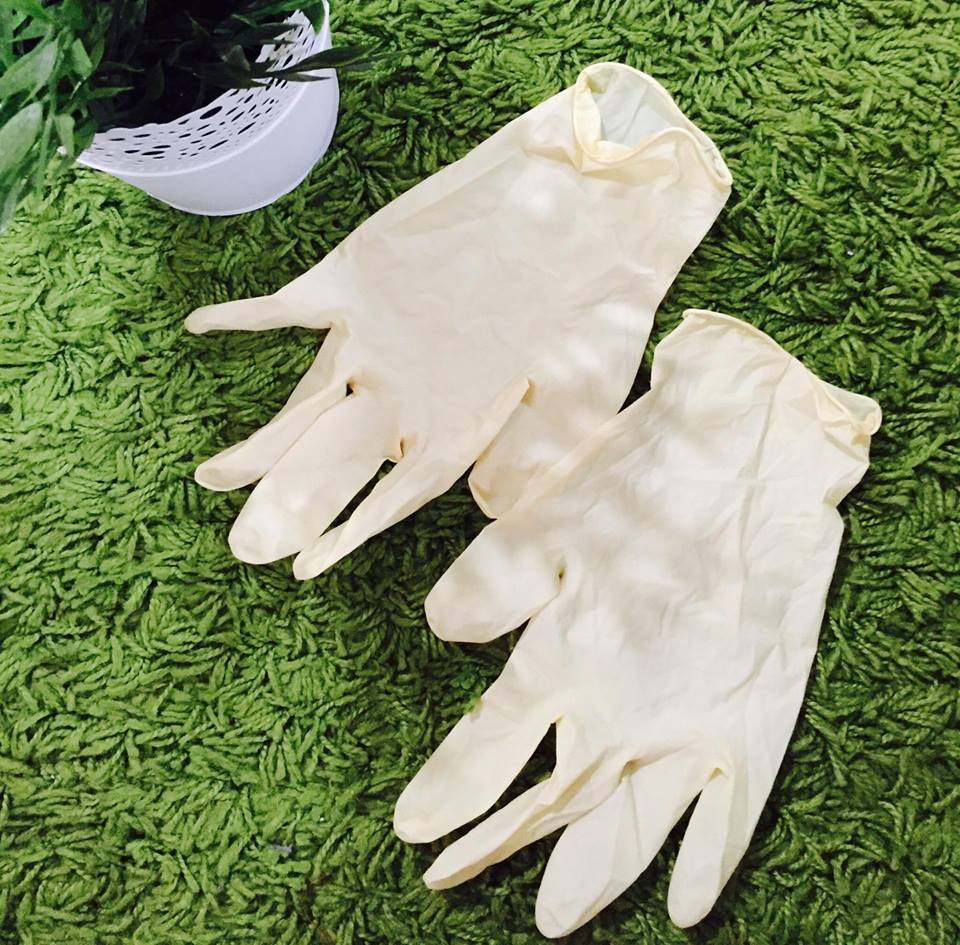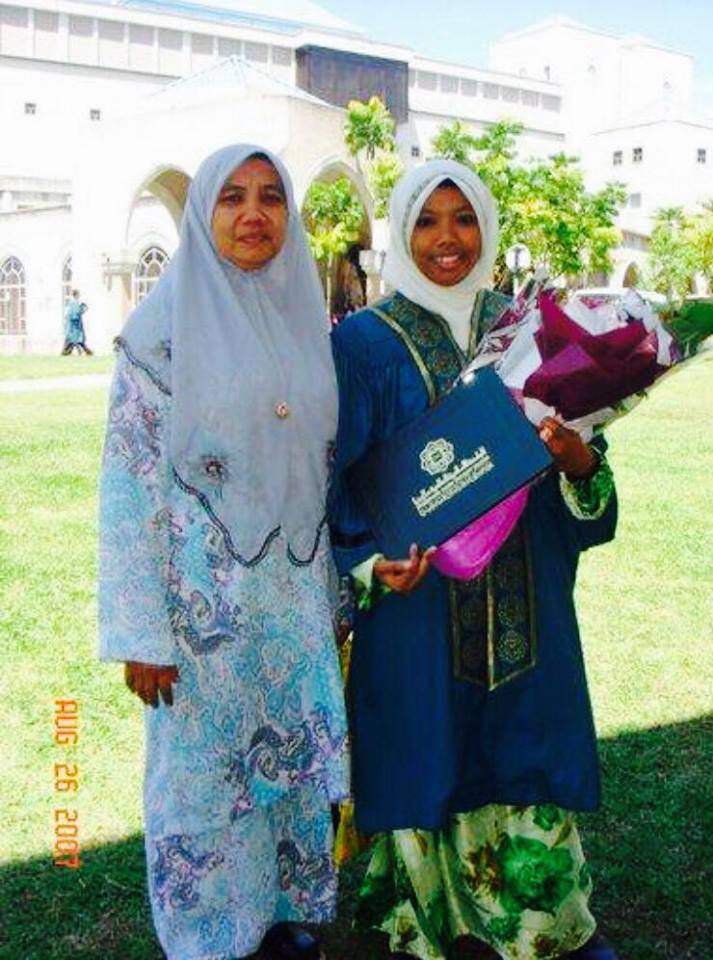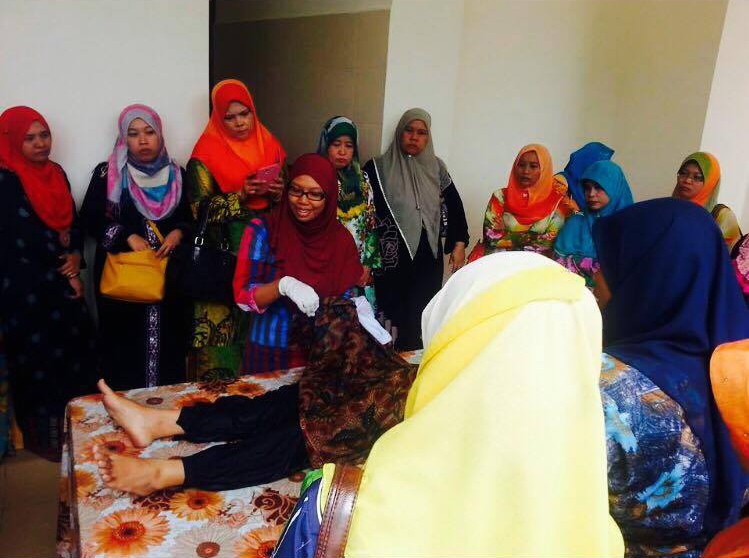I'm A Lawyer, But I Also Have A Second Job People May Find 'Spooky'
"Sometimes, I just bring my children along to the morgue."
Siti Rasidah Abd Radzaz has excelled in the legal profession, but not many know that she is actually an undertaker at the beginning of her career
Siti was working as Johor's deputy public prosecutor from 2008 until 2015, before she moved on to become a lawyer and partner at The Law Chambers of Fazaly Ali law firm today.
While she's dedicated to her career in law, the 34-year-old has revealed that she also bathes the dead. In fact, her knowledge and experiences have allowed her to share useful tips on how to conduct and observe the Islamic funeral customs and service rituals.
"Now that I'm in the private practice, it is easier for me to manage my time between working as a lawyer and bathing the bodies of dead women in Johor Bahru," Siti said.
Her journey as an undertaker began about 17 years ago
Siti's mother, Puan Hajah Sa'dah binti Saliehan, was working as an undertaker at the Johor Islamic Religious Council (MAIJ) until she retired recently. Puan Hajah used to give lectures for courses on funeral processions so that was how Siti received those knowledge too.
After completing her SPM examinations in 2000, Siti began accompanying her mother in handling funeral processions for Muslim women during her holiday break.
"At that time, I only acted as an assistant. I just followed the instructions given by my mother. Over time, my mother asked me to handle the corpse by myself. I was even tasked to oversee the processions. It was a fairly heavy responsibility," Siti said.
Siti spent the next few years to pursue the legal profession but continued to help her mother out whenever she could
"After getting my SPM results, I furthered my studies in the field of law at Universiti Islam Antarabangsa (UIA) from 2001 until 2006. During this period of time, I was just helping my mother during the semester breaks."
In time, she slowly learned the knowledge and skills needed to bathe the dead from her mother while studying law.
"Those days, my mother would supervise me from the beginning until the end of the funeral rites. She would ensure that everything goes on smoothly," Siti recalled.
Contrary to many sensational stories related to bathing the dead, Siti said that she has yet to experience anything "mystical"
"I've had many different experiences whenever I followed my mother to bathe the corpse. Yet I swear that none of it was a mystical experience. I myself had wanted to experience them but it didn't happen. Alhamdulillah, that everything has been easy and simple to manage."
Siti is still bathing the body of the deceased until today, although she admits that it challenging to do so due to her busy schedule.
"Sometimes, I just bring my children along to the morgue," the mother of two said.
"To do this job, you have to be strong. Learn how to withhold your tears. Because you will be in situations where you feel like crying. I have cried many times while bathing the deceased when I had to bathe the remains of a family member or my own friend."
Although it is a customary funerary practice, Siti said that many people still do not have the courage to bathe a corpse if the deceased is not part of their family
"There are those who think that there are many restrictions when bathing the dead such as menstruation or that children cannot observe the process to bathe the dead in fear of getting jinxed," she said, adding that everyone can bathe the remains of another person long as they are sane.
She opined that the lack of information has caused the public to have this perception that it is unimportant to learn about the funerary practice, leaving it completely to the corpse bather to handle the matter. However, she noted that most people would still participate and even perform the ritual together.
"The society is rarely exposed to this topic on how to manage a person's remains. I hope that this will help to open the minds of people that even the young people can be taught to handle a corpse."
Unlike many young people who stayed away or have little knowledge about how to handle the body of a deceased person, Siti is passionate about the practice
"I have followed my parents to the Sultanah Aminah Hospital mortuary in the event of a death since my childhood. My siblings and I were given exposure on the Muslim funeral procession ever since we were kids."
"Therefore, the interest developed naturally and I thought that this is something that is close to my heart," Siti explained.
"I have chosen to help my mother out of the sense of awareness and responsibility. I think that this field is in need of those from the younger generation."
Siti's story is one of many others featured on the Malaysian City Life series on SAYS. Do you have a story or experience to share, or have you seen any we should write about?
SUBMIT YOUR STORY NOW. FB message us or email us at [email protected] about your intent to share something with us. It could be about a particular time in your life as an urban city-dweller in Malaysia, or it could be a story you've seen or heard.
We'll get in touch with you for your story to be featured on SAYS!
Stay tuned for the next episode!
